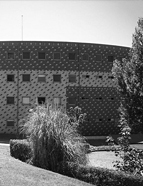

The foundation of the modern Faculty brought some splendour to the history of law, more through the merit of one of its distinguished masters than its moderate prominence granted by the new teaching plan. This figure was Manuel António Coelho da Rocha, whose remarkable teaching was like a shooting star in the teaching of legal history. Although fleeting, it led to significant changes during his tenure in the discipline. Having long lacked a lecturer of his calibre, and especially someone who intentionally prioritised matters related to the history of Portuguese law, "since he regarded them as a subsidy and indispensable preliminary for the understanding of national laws, in teaching, they should stand on an equal footing with the study of jurisprudence."
This profession of faith in the utility of legal history was at the forefront of Coelho da Rocha's well-known Ensaio sobre a história do governo e da legislação de Portugal [Essay on the History of Portuguese Government and Legislation]. It would represent the definitive sign of the author's productiveness while he led the discipline. After a period of maturation, its editio princeps emerged in 1841, a meticulous work that served as the official compendium of the history of national law at the Faculty of Law of Coimbra for decades. Coelho da Rocha's Ensaio took the former Historia Iuris Civilis Lusitani of Mello Freire as the reference it replaced but did not disguise the advancements it brought to the history of Portuguese law. It filled gaps, changed the method of topic presentation, and corrected interpretations marred by the treacherous prism of political enthusiasm. The very conception of history progressed with Coelho da Rocha's Ensaio. This work was highly acclaimed by the rigorous Alexandre Herculano, to the point of his announcing that the great revolution in science had already arrived in our country: "The first cry of rebellion against the highly false denomination of history, given exclusively to a complex of biography, chronology, and military facts, has been uttered by the author of Ensaio sobre a história do governo e da legislação de Portugal."
From another perspective, the favourable judgement bestowed on Coelho da Rocha's book by Alexandre Herculano is hugely significant, marking a new scientific spirit that had taken hold. Thus, a historiographic concept was adopted that reflected the significant deeds of the nation, giving value to the collective construction carried out over centuries, which was thenceforth to be considered according to historical-cultural eras rather than reigns. It was time, as Herculano himself wrote when he reviewed Coelho da Rocha's book, for history to be more than just a date and an evangelical autem-genuit of nobility. The mid-century mark had been reached, and while we were limping, we were not disabled.
